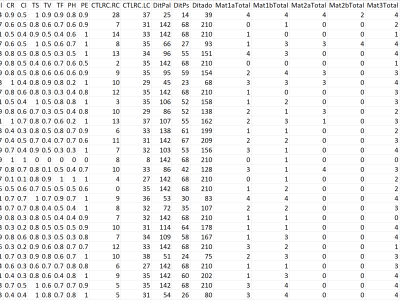RSSI data using polynomial approximation

- Citation Author(s):
-
Nguyen Phuc
- Submitted by:
- Nguyen Phuc
- Last updated:
- DOI:
- 10.21227/8jyy-rp32
- Data Format:
 188 views
188 views
- Categories:
- Keywords:
Abstract
Nowadays, the advent of science and technology has brought many benefits to people. Positioning technology has also contributed to making lives much more modern and convenient. In recent years, location technology is not only used for major purposes such as military, commerce, transportation, national security, but also to serve normal daily life activities, such as video games, online shopping, or finding fitments lost in the house or a mall, etc. This paper studies the Indoor Positioning System based RSS (Received Signal Strength) using a Beacon network with BLE (Bluetooth Low Energy) signal. The target of the system is to find the location of people or subjects in short-range areas, such as a room, a building, or even a small alley. There are two problems that we are faced. Firstly, the result of the estimated position has a significant error due to RSS signals sharply fluctuating over time. Secondly, the relationship between RSS and distance is not injective. This leads to the results being significantly erroneous. Therefore, we propose a method to decrease this error by using a Weighted Least Square (WLLS) method. The goal of this solution is to maintain the result of the RSS to distance estimation stage. All of the measurements and experiments were performed and repeated many times in a realistic indoor environment. The results show that our solution has increased localization accuracy, and is feasible for actual deployment.
Instructions:
We measure different RSSI values at each different location and then apply Polynomial Approximations to generate equations for each BLE beacon, using Matlab tool:






